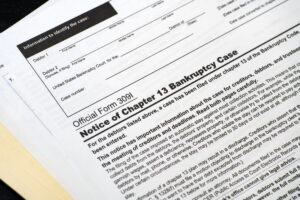Helping people with student loan debt can be one of the biggest challenges for a bankruptcy attorney. Technically, student loans can be eliminated in bankruptcy. The reality, however, is much different. In order to discharge student loans, the former student will have to bring a lawsuit in bankruptcy court to show that repaying the debt will cause undue hardship. Although that seems like a fairly easy argument to make, it isn’t. And the student loan lender will be there arguing even harder that the loan shouldn’t be discharged.
The point of this post, though, isn’t to talk about getting rid of student loans in bankruptcy. The fact is, I tell most people who come in for a consultation that they won’t be able to get rid of them. The point of this post is to give some insight into what can happen if you default on a federal (as opposed to a private) student loan.
Federal student loan lenders enjoy remedies that private student loan lenders do not. The two primary weapons in their arsenal are their ability to garnish your federal tax return (also called a Treasury offset) and up to 15% of your wages without getting a court order. Private lenders cannot garnish your tax refund and need a judgment order from a court before they can garnish your wages or bank account.
Before the federal student loan lender will garnish your wages they’ll mail you a letter giving you 30 days notice of the garnishment. You’ll be have to object in writing and request a hearing to try and avoid a garnishment. If you do nothing, your wages will be garnished and there is no guarantee that the hearing will result in not being garnished. Objecting will at least buy you some time before the garnishment kicks in.
If you can’t bring your loans current, you’ll have to work with your student loan lender to get your loan out of default, sometimes called rehabilitation. That’s a subject for another post.
While bankruptcy may not be able to eliminate your student loan, it can provide relief from other debts and help you manage your student loans easier.
If you have questions about how to manage your student loan debt, we hope you’ll come in for a free consultation with an experienced Colorado bankruptcy lawyer. You can make an appointment by calling 303.331.3403 or by using our online scheduling system.



